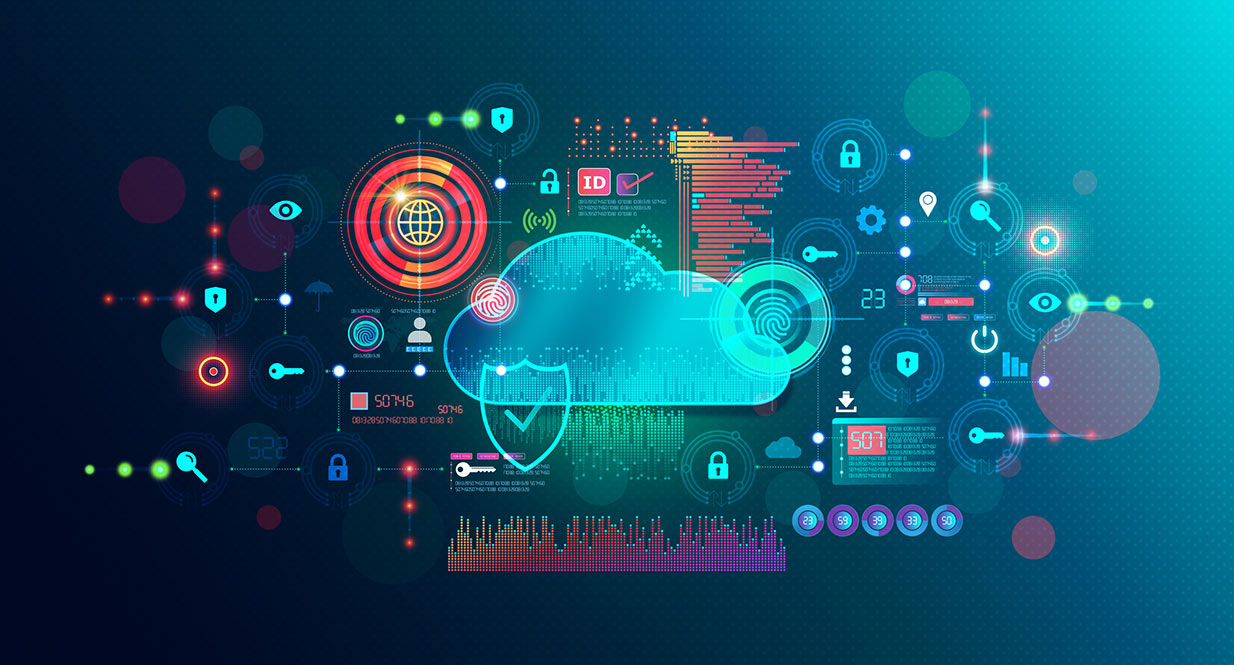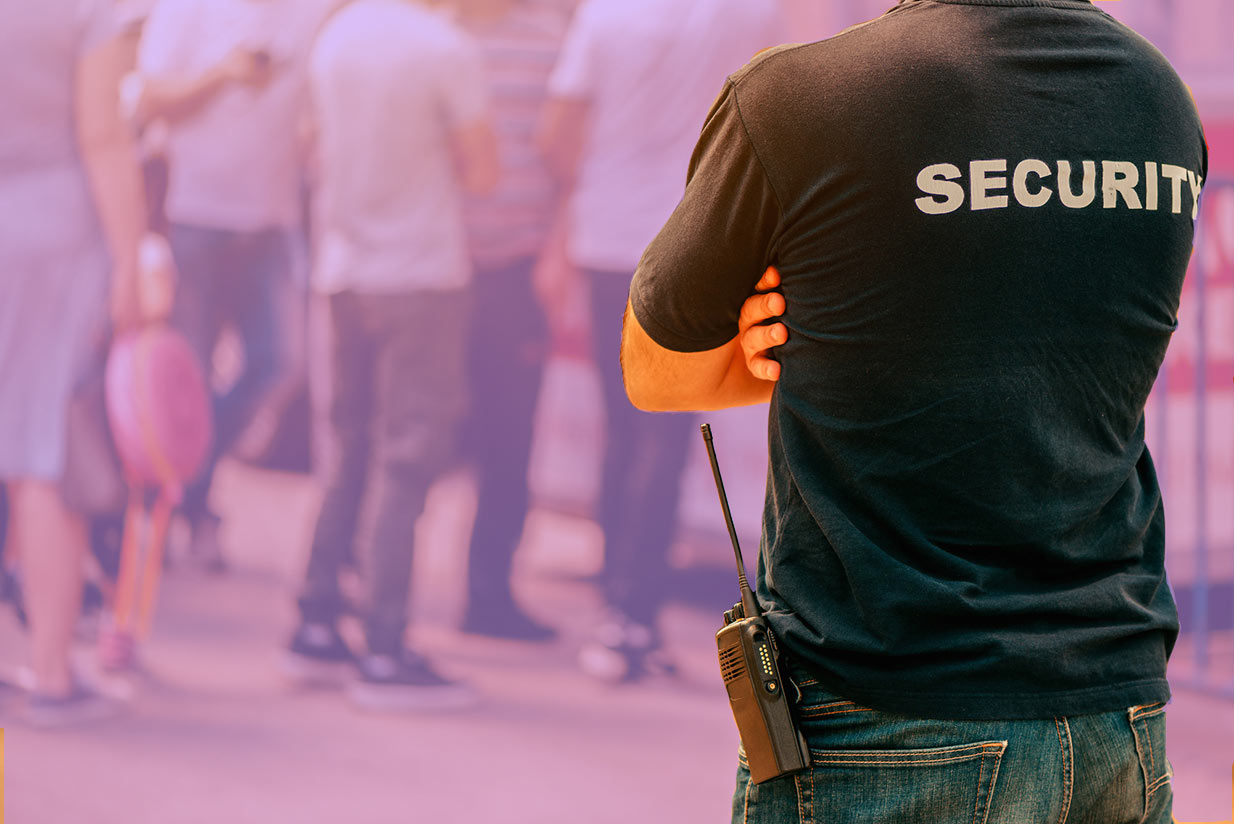In this day and age virtual and hybrid events require all-new strategies to keep attendees and their data safe, while physical events face the same old threats…but with new technology.
The global event security market is predicted to reach $22.6 billion soon, with much of the growth in video surveillance and system integration. As event organizers, you need to develop an adaptable, proactive, and comprehensive approach to keep everyone safe and ensure that your event runs smoothly.
Virtual Events Security: Navigating the Digital Landscape
The COVID-19 pandemic showed the value of virtual and hybrid events. Virtual events increase the ability of diverse attendees to participate and saves costs for attendees and organizers. However, these events face unique threats. Data breaches can also affect live events; attendee databases are valuable targets. Global breaches totaled 6.41 million records in the first quarter of 2023, and events, especially large ones, are great targets. However, virtual events face the possibility of cyberattacks on the event itself and online harassment during the event.
“Zoom bombing” became a thing during the pandemic, where events were disrupted by actors who blasted porn or similar to attendees. 74% of zoom bombing in 2020 and 2021 was committed by attendees, so role management is important to prevent this. Virtual events may also be vulnerable to DDoS attacks, taking up bandwidth and destroying people’s ability to attend. Online harassment can happen both on your platform and beyond if contact details leak. Robust cybersecurity measures are vital to protect everyone.
Essential Virtual Security Practices
Best practices in virtual security focus around four areas:
Authentication and Access Control
At the most basic level, access control means checking everyone logging in is authorized to attend. However, access control goes beyond that. Role-based access control allows extra permissions to be given to speakers, volunteers, and even people who have paid for a “VIP” membership. Ensuring that only registered speakers can turn their mic on is basic, but advanced solutions can allow specific access to each individual, personalizing the experience while reducing damage if an attendee’s login is compromised.
Make sure that only authorized people have access to any “back end” which might, for example, include participant emails and phone numbers…a data breach here can be embarrassing and potentially dangerous. Imagine, for example, you have a speaker who recently had his online idendity compromised.
Data Privacy and Encryption
All conferences need to make sure attendee data is protected. Attendee data often includes personally identifiable information (PIl) such as email addresses, phone numbers, and shipping addresses. Depending on the nature of your conference, it can also include the person’s date of birth and/or financial information. GDPR regulations often apply to virtual conferences with international attendees and are a higher standard than most places; following them should ensure global compliance. This means you need a data security officer for your event.
Use a secure platform that encrypts all attendee data, including passwords. Avoid storing credit cards if possible; once an attendee has paid, the payment details can and should be deleted. Don’t store data you don’t need to effectively run the conference.
Platform Security
Whatever platform you choose should have built-in security features and be well-supported with regular updates. It’s typically better to use an all-in-one platform to reduce the risk of errors. Make sure you have robust capabilities to monitor and record events. Unfortunately, invited speakers can sometimes be the ones doing the harassment. Imagine one of your speakers uses a racial slur in the middle of the conference; will you have it recorded so appropriate action can be taken?
Make sure video conferences are end-to-end encrypted so they can’t be interrupted by a man-in-the-middle attack, and make sure that problematic attendees can easily be evicted from the conference.
Responding to Virtual Security Incidents
Have a specific harassment policy and code of conduct. This should apply to everyone, including staff and volunteers. Then have an incident response plan for all possibilities: Harassment, data breach, DDoS, etc. Collaborate with security experts.
For example, do you have a plan if somebody decides to do a DDoS in the middle of your keynote speech. Talk to your security experts and platform vendor about strategies, such as rerouting data, that can be used to quickly recover.
Do you have a plan to remove somebody who is harassing or spamming attendees?
Virtual and hybrid events require a robust, comprehensive cybersecurity strategy to ensure everyone is safe.

Live Events Security: A Multifaceted Approach
Live events security in 2024 is different from the past, primarily because we now have better technology, but also an increase in disruptive behavior, such as an incident at the American College of Obstetricians and Gynecologists where a heckler yelled profanities and assaulted a speaker. Some events, however, may also have to deal with protesters. Traditional methods also often leave holes that have, in the past, been ignored, but which can now be dealt with, improving safety and security for everyone.
Beyond Traditional Measures
There’s still a place for metal detectors and bag checks, but if not done correctly these can easily become security theater. (For example, many large trade shows check the bags of attendees, but anyone with a vendor badge can walk right in carrying anything…)
A more holistic approach includes proactive threat assessment and risk management. It includes, for example, looking at potential flashpoints where heckling might happen, and proactively putting security in place. It also includes looking at the area around your event, and what issues might happen. Excluding potential threats from the event is easier and less dangerous than throwing them out later.
Integrating Technology and Human Intelligence
Advanced technologies such as facial recognition and loT sensors can help keep your event secure. For outdoor events, drone surveillance can be valuable. Al can help with surveillance by assisting in mass facial recognition. However, Al should not be divorced from human intelligence. Predictive analytics require both technology and the human factor. “Unsupervised” analytics have been shown to have racial and gender bias, so always check that your analytics are not, for example, encouraging your security staff to closely monitor Black attendees. This means training security staff in how to properly use these systems and taking action to discourage abuse.
Event Specific Concerns
Different events may require a different approach. A concert or sporting event, for example, will benefit from drone surveillance to allow a different view on problems, monitoring of attendees as they enter, and facial recognition with Al to spot known threats. Meanwhile, a small conference may need less in the way of advanced technology, but might need to deal with interpersonal conflicts between attendees and benefit from people trained in conflict resolution.
Large trade shows have to deal with show floor security, working with vendors to prevent theft. A recent incident happened at Gen Con in 2023, over $300k worth of collectible cards were stolen from an event booth. This may mean extra staff on the show floor, improved access control (for example, tying vendor badges to specific individuals), or working with vendors on their own security practices.
Building a Culture of Security
Including everyone in security, where all involved are trained and aware, but where one person “owns” safety can help you build a culture where people work together to keep the event secure and security is not “the enemy.
Trained security staff are a vital piece, but they can’t be everywhere. Training staff, volunteers, and attendees on safety procedures and emergency protocols help. Everyone should be keeping their eye open for problems and incidents. For example, if sexual harassment occurs in a breakout room, does the volunteer facilitating the room know what to do?
Training and Awareness
While security guards are a crucial line of defense, a truly secure event requires a more comprehensive approach. A successful security plan ensures not just trained security staff, but also making sure that event personnel and volunteers are all on the same page regarding safety procedures. By equipping everyone with the knowledge and tools to identify and react to potential issues, we can create a collaborative environment where everyone plays a role in ensuring a safe and secure event experience.
Attendees should also be encouraged to keep their badge safe and report stolen badges immediately. Allowing badge replacement at a discount fee encourages reporting. Vendors should be trained to remove their badge as soon as they leave the show, as there have been incidents of trade show vendors being mugged while walking back to their hotel by criminals who assume they are carrying a lot of cash.
Collaboration and Communication
Work with local authorities, especially for larger events. You should coordinate with the police if you have a lot of people, including transit police if many will be coming in by public transportation.
Your venue may or may not have their own security. Convention centers will work with you on security. Smaller hotel-based events may have less support. Make sure that convention center security understands the specific needs and peculiarities of your event. Being at odds with venue security can cause problems between you and your attendees.
Be proactive with your communication and explain your needs, especially if it’s your first year at a venue.
In today’s world, you can’t just do bag checks. You need to invest in security technology, training, and strategies, both virtual and physical, to make sure your event is safe and successful.
SFG Productions provides solutions for virtual and hybrid events that help you produce an amazing (and secure) event for you and your attendees. Contact us to find out how our production solutions can supercharge your event.
